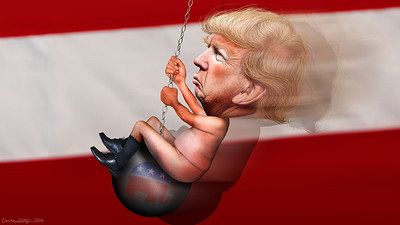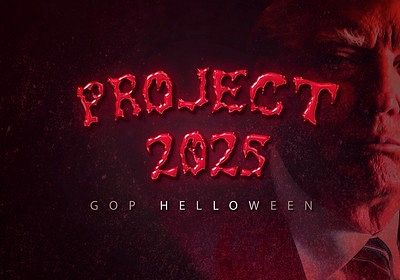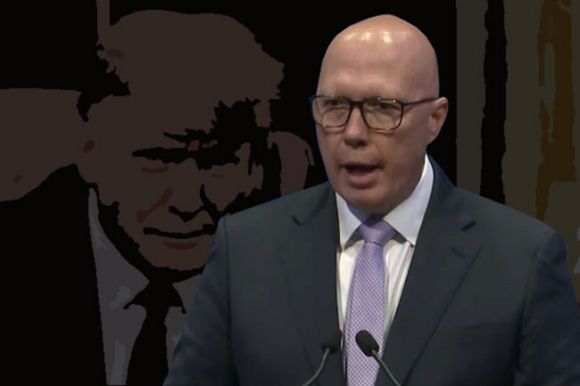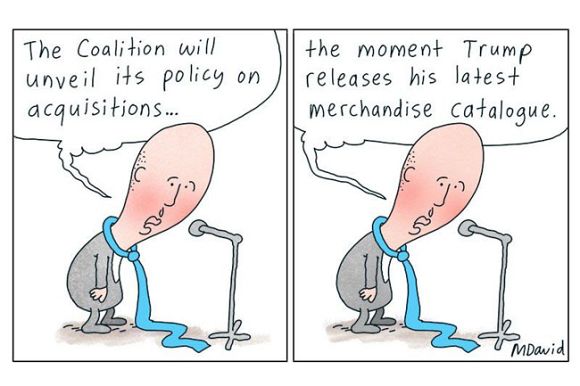Peter Dutton is mimicking Donald Trump's strategies — making Australian politics more cynical, more angrily partisan, more culturally charged, overly politicised and Americanised, so veteran journalist Dr Nick Bryant tells the National Press Club. Rosemary Sorensen reports.
IN THRALL TO the dominant culture of the United States for the past century, if Australia were to lurch towards the politics of that failing nation, the perils are enormous.
Already, Bryant sees signs – despite safeguards such as preferential and compulsory voting – that Australian politics could respond to the second coming of Donald Trump by further mimicking the successful strategies of an undemocratic authoritarian.
Recently, Bryant gave a speech to the National Press Club (NPC) titled: 'The Consequential Country: Australia & the World Annual Lecture' — on the back of the release of his book, 'The Forever War: America's Unending Conflict With Itself'.
Bryant pointed out that Opposition Leader Peter Dutton’s challenge to the Australian Electoral Commission’s (AEC) vote-counting system for the Voice Referendum – and his use of the term “rigged” – was misinformation used to undermine confidence in an enviably rigorous electoral system.
And before Dutton, former Prime Minister Scott Morrison was “borrowing from the GOP field manual” — with his brand marketing, slogans and falsehoods.
Further back, former Prime Minister John Howard’s outrageous libel that boat refugees had thrown their children overboard was timed to manipulate votes as shrewdly as Trump’s claim that Haitian migrants were eating pets.
Bryant told his audience of journalists:
“The Trump effect has made politics here more cynical, more angrily partisan, more culturally charged and overly politicised”
By which he means, less honest and less useful to a functioning democracy.
In his book – and repeated at the NPC – Bryant’s plea is that Australia resists Americanisation.
Written since he left the United States, where he had worked as the BBC’s correspondent, The Forever War: America’s Unending Conflict With Itself is both a corrective to the view that Trump is “completely without precedent” as a United States president and a devastating analysis of why he is “so dangerous and historically different”.
With economy and fluency, Bryant lays out the evidence that since the creation of the – flawed – U.S. Constitution, the USA has been gamed by presidents.
Even the mythically heroic ones, such as the sainted President Abraham Lincoln, described by Bryant as:
“the leader widely regarded as America’s greatest-ever president – whose memorial shares pride of place with Washington’s on the National Mall – repeatedly violated his sworn oath to defend the Constitution.”
Before President Lincoln, a populist authoritarian like President Andrew Jackson did things like introduce the 1830 Indian Removal Act:
"which allowed him to carry out the forced eviction of Native Americans from their traditional territory with genocidal fury."
So, “pushing the bounds of authority” has a long history with American presidents.
What’s different now is that Trump’s Republican party is failing to “rein him in”.
And, as the news comes through day after day of shocking appointments of Trump acolytes to positions of power in his Administration, this failure is becoming even more dangerous.
Bryant answers two questions that anyone watching this American tragedy unfold will have asked: why did Americans vote for Trump?; and, why did the media not do more to let people know what kind of president they were electing?
Bryant takes some responsibility for that second question, suggesting:
“we were covering an abnormal presidency while trying to abide ourselves by normal rules of journalistic engagement… Fearful of being seen as elitist and anti-populist… we reported Trump as a rogue president rather than an aspiring autocrat or, as he later became, a fully-fledged authoritarian.”
At the same time, whenever Bryant wrote even the slightest suggestion that Trump was behaving ridiculously and dangerously, a barrage of complaints to the BBC resulted in him being told off by his employer and forced to retract.
Virulent campaigns against journalism are doing enormous damage to the public right to information.
As for the first question about how on earth so many Americans decided that Trump was a fit and proper person to run their country, history shows that American voters:
“repeatedly endorsed a dominant presidency… Polls suggest there is surprisingly strong public support for presidents who trample on the Constitution.”
This is the “strongman” leader who is preferred by the majority of American people, which Trump exploited — and even talked about it.
The propagation of anti-health nonsense, the abuse of migrants, the pussy-grabbing, the claim he could shoot someone and people would still vote for him, the final authoritarian promise he’d protect women whether they liked it or not — this was all feeding into the strongman persona.
America nodded and said, yep, he’s our man. Kamala Harris could do nothing to counter it.
We ought to be shocked, but not surprised, Bryant says:
“From the Salem witch trials to the rise of Qanon, from P.T. Barnum to Donald J Trump, America has always been prone to fantasy, post-truthism, conspiratorialism, information manipulation and alternative facts.”
History is the battlefield where these alternative facts slay the inconvenient truths.
This, again, is very much part of the way Australian politics is gamed — with media assistance.
Australia Day, the sanctimony around Anzac Day, even the way a horse race is talked about as somehow embodying Australian values – discussing nuance, revisiting the history to understand more than one perspective and recognising why change is needed are all manipulated into an oppositional argument, full of accusations and abuse.
The Opposition, as Trump and Dutton make clear, never has a valid point. You are, as Collingwood Football Club used to say in the heyday of its divisive cultural identity, with us or against us.
Nasty stuff that blocks out the sun of compromise and collaboration.
While history is used as a driver of politics, Bryant points out that the USA is becoming ever more “historically unlettered” (that is, stupid):
“The past is not merely being forgotten or misremembered. Commonly, it never gets taught.”
Australia’s historians have made it very clear: if you don’t understand the past, you are condemned to repeating the same mistakes. The defeat of the Voice to Parliament was a devastating defeat of that plea for a collective understanding of history.
Meanwhile, in the United States of America, every day, 12 children are shot and killed. The National Rifle Association (NRA) has dominated American politics and while a majority of Americans want gun control — no politician dares risk an election on the issue.
Bryant sees the awful gun violence of American culture as not just a result of the political mess they’re in but as a cause:
"the NRA pioneered a destructive brand of politics mimicked by the Republican Party. It was based on incendiary rhetoric, a theological absolutism, a binary and polarising framing of issues, the demonisation of the federal government, the need to keep its members in a perpetual state of fear and paranoia which involved the stoking of a conspiratorial mentality, the mischaracterisation of its opponent’s position, and, finally, a deliberate distortion of history.”
That, my friends, is not a rosy picture.
And, while Bryant notes that “American exceptionalism has become an entirely negative construct”, here we are, watching the Australian government flap about with the usual cliches about special friends and valuable allies to somehow – unfathomably – protect the stupidity of the AUKUS agreement.
Bryant reckons it sounds like an affliction – “a bad case of AUKUS”.
Veteran Australian journalist, Quentin Dempster, writing for Pearls and Irritations, says the AUKUS agreement to build and acquire nuclear-powered submarines at astronomical cost 'entrenches our status as a U.S. staging post' — and that it basically destroys Australia’s sovereignty.
At the conclusion of Bryant’s analysis of the state of American democracy, we are confronted by the question: are there signs that Australia, like the rest of the world, “is trying to inoculate themselves not just against Trumpism but Americanism more broadly”?
If this is – as Bryant suggests – likely to become a “century of anti-Americanisation”, will Australia go down with it?
Rosemary Sorensen is an IA columnist, journalist and founder of the Bendigo Writers Festival. You can follow Rosemary on Twitter/X @sorensen_rose.
 This work is licensed under a Creative Commons Attribution-NonCommercial-NoDerivs 3.0 Australia License
This work is licensed under a Creative Commons Attribution-NonCommercial-NoDerivs 3.0 Australia License
Support independent journalism Subscribe to IA.

Related Articles
- Trump turns the American dream into a nightmare
- Trump’s tariff wrecking ball about to hit the global economy
- No coming back from Trump
- Trump's runaway trolley piling up with cuckoo captain's picks
- Trump's tariffs and their effect on the Australian economy
















